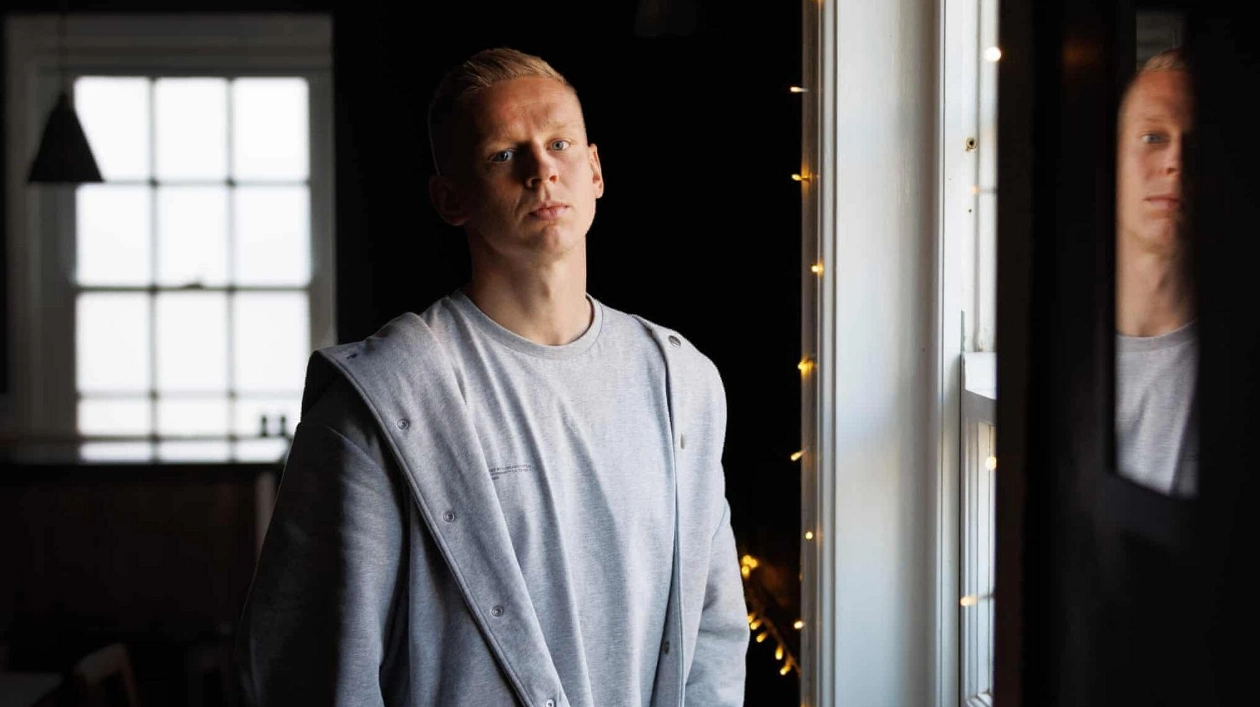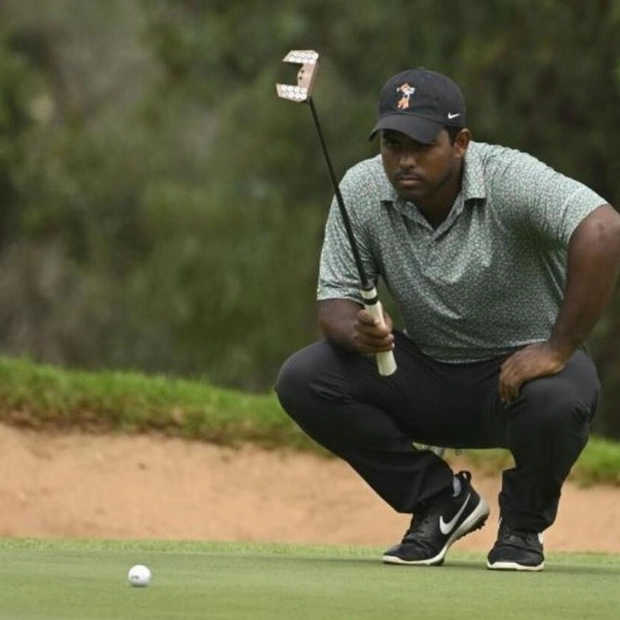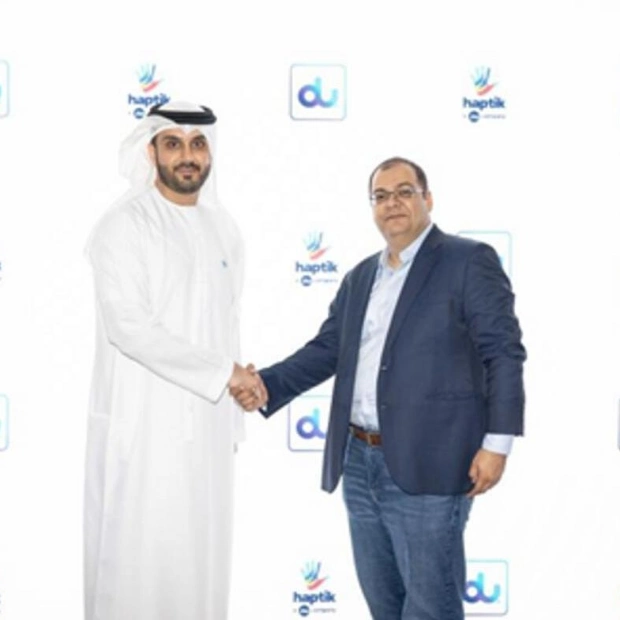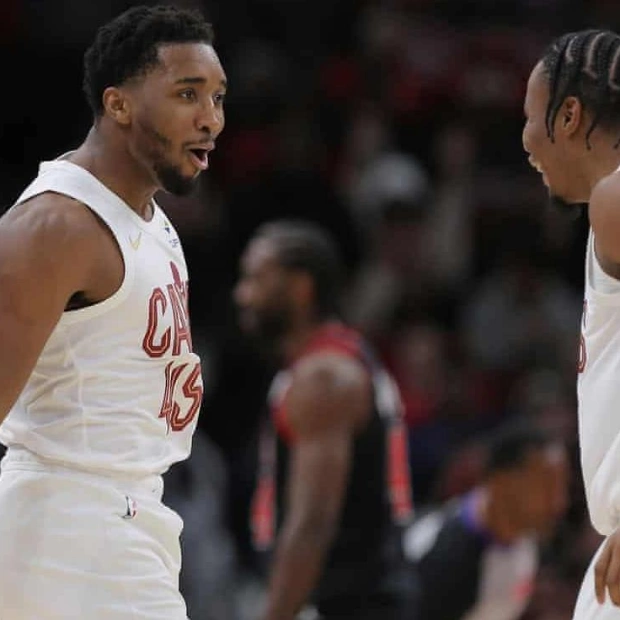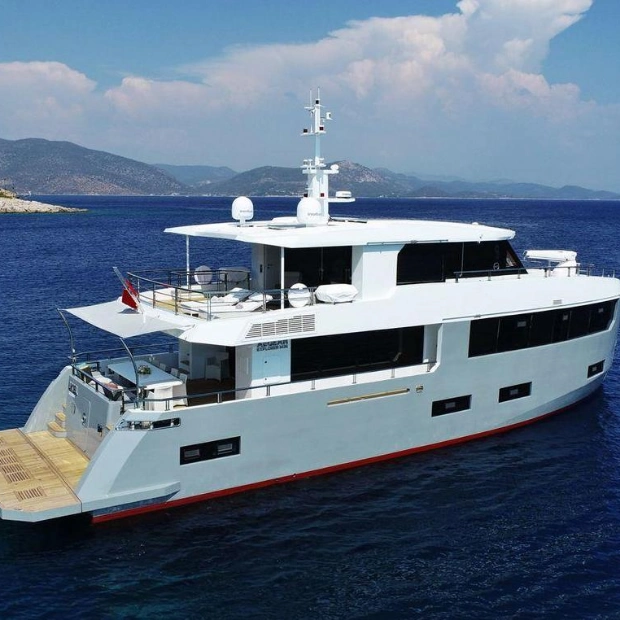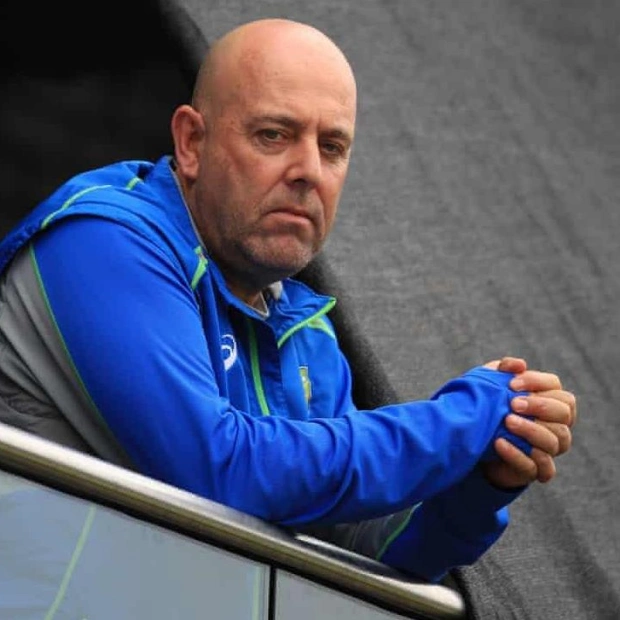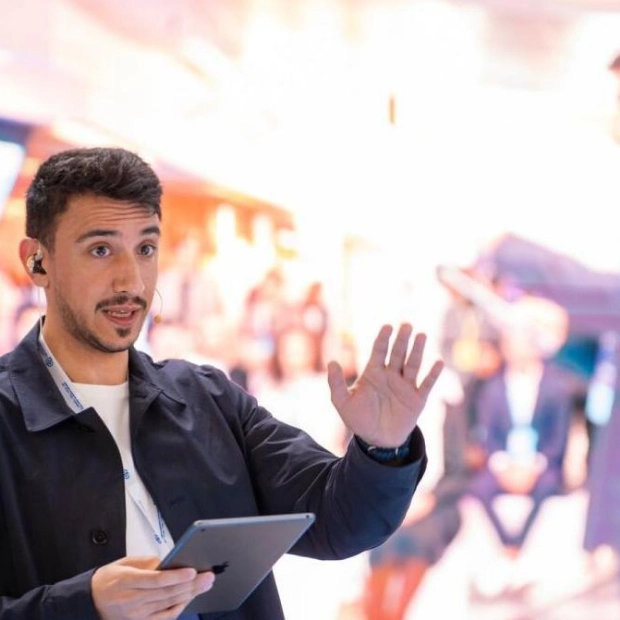“To become a professional footballer from the place where I was born and raised was almost impossible. It was incredibly tough,” Oleksandr Zinchenko says, his eyes widening as he reflects on his journey from Radomyshl, a small town in northern Ukraine. “We didn’t have many facilities and we trained only twice a week, for one game, which isn’t the path to becoming a professional. Playing and training with my local team was pure joy, but I always wanted more. My mother saw the determination in my eyes.” We sit in a bright, airy room on a lovely autumn afternoon in Hampstead. Meanwhile, in Ukraine, the ongoing war makes winter another harsh challenge. Zinchenko picks up his phone. “This morning, my aunt sent me a video,” he says. “She’s been working in a nursery for over 30 years. The video shows her hiding in a shelter from 7.30 until 10.30 because of a siren. Working with kids, she can’t take any risks.”
The Arsenal defender and Ukraine captain can’t escape thoughts of the war. His mother still lives in Radomyshl, and he confirms that “all my family are in Ukraine.” Zinchenko, 27, pauses. “But I think I’m more useful here than there. Footballers in the Ukrainian league have to hide in shelters when sirens go off. I show these videos to my Arsenal teammates, and they can’t believe we live like this. It’s insane.” We soon discuss Zinchenko’s new autobiography, Believe, co-written with Raphael Honigstein, which offers deep insights into playing for Pep Guardiola at Manchester City and Mikel Arteta at Arsenal. It’s also a poignant account of Zinchenko’s life in Ukraine and his role in the national struggle.
Zinchenko recalls meeting Volodymyr Zelenskyy and cutting through formalities to say: “Mr President, this isn’t scripted, but these words come from my heart. My family and friends feel the same. I don’t know what would happen to our country without you.” Zinchenko shakes his head. “Sometimes I try to imagine being in his position, but it’s impossible. I don’t know that kind of pressure, but you can see it in his eyes.” Zinchenko strives to be diplomatic when asked if he fears the world’s attention has shifted away from Ukraine. “I’m incredibly grateful for the support we’ve received. This help comes in many forms. Seeing a sticker with a Ukrainian flag on a car gives me hope that we’re not alone. At the same time, I understand there’s fatigue with the war. But if you were in our shoes, you couldn’t give up, right? We need to stick together to show justice and bring peace.”
Football provides a respite, despite Zinchenko’s recent injury struggles. On Tuesday night, Arsenal faced Shakhtar Donetsk in the Champions League, the Ukrainian club where Zinchenko faced early career challenges. As a 17-year-old, he was determined to break into the first team but faced competition from talented Brazilians. When it became clear he wasn’t seen as a genuine prospect, Zinchenko refused to sign a new contract. “I briefly thought about giving up. This was the darkest hour. I felt invisible,” he writes. He stresses that he still loves Shakhtar but, in February 2015, took desperate measures, joining Ufa in the Russian Premier League. A year later, Manchester City signed him, transforming his world.
Zinchenko realized football is a tough business but is more focused on the positive experiences under Guardiola. When asked about City’s battle with the Premier League, Zinchenko shrugs. “I’m not following this at all. I’m just focusing on the football.” Instead, he provides compelling accounts of being managed by Guardiola and Arteta. Under Guardiola, the level of coaching was almost overwhelming, but his fierce intelligence and relentless drive inspired Zinchenko. Zinchenko learned that Guardiola never shouted and always offered positive reinforcement. However, you don’t become the best manager in the world without a ruthless mentality.
Zinchenko recalls questioning Guardiola after a training criticism. “Out loud I said: ‘Mister! I just made one wrong pass, you know?’ And his reaction was incredible,” Zinchenko writes. “‘Oh, okay, sorry, Mr Zinchenko. Thank you, everyone inside.’ And he went in, walked to the changing room. Training over, all because I talked back. I knew I was in trouble.” Zinchenko was benched for the next game. “Listen, first of all, I was not right,” he acknowledges now. “I understood straight away, but it would have been silly to go right to his office and apologise. I did apologise after the game.” Guardiola forgave Zinchenko, and their bond strengthened. On the night City won the treble in June 2023, Guardiola called him. “I can only imagine how much they celebrated, but to get a call from Pep? I couldn’t believe it. He said: ‘Alex, you are a big part of this.’ I was fully surprised in a good way. I said to him, again, a massive thanks for everything he did for me. It shows how good-humoured he could be.”
Zinchenko talks amusingly of how Arteta keeps his squad energised. In the summer, Arteta brought in professional pickpockets to steal from his players during a team-bonding exercise. Their watches and wallets were soon returned. Zinchenko was not a victim that time but was picked out by Arteta in a different stunt. “We stayed at the same hotel before a match,” Zinchenko recalls. “There was a new waiter that day. Before we went to the stadium, Arteta said: ‘OK guys, let me wake you up, because we need energy. Last time, Alex, we played staff against players and you beat Nicolas Jover. Let’s do it the same, but freestyling.’ Everyone was like: ‘What? For sure, Alex will beat him.’ Nico started to do something with the ball and then suddenly it looks like he got an injury. It was so obvious but weird. Then they called the new waiter. We didn’t know he was a professional freestyler. He destroyed me with his tricks and all of us were in deep shock. But then we were all laughing and we went to the game with good energy.”
When Zinchenko arrived at Arsenal in 2022, he and Gabriel Jesus agreed: Arsenal had the talent but lacked conviction. “I remember me and Gabi said: ‘Wow, the quality is unbelievable and the energy and desire to learn every day is there. The only piece missing is belief.’” We talk before Arsenal’s defeat at Bournemouth last Saturday, and Zinchenko suggests they now have this belief. “Yes, I think so. That’s what I feel in the dressing room and on the pitch. That’s what I see from everyone now.” Zinchenko, nursing his injured calf, watched Arsenal, down to 10 men, hold off City at the Etihad Stadium until they finally conceded a 97th-minute equaliser. “I dropped a message in the group chat after the game. I just said: ‘You fucking warriors. Honestly, you are warriors.’ Wow, the second half was unbelievable because we all know how tough it is to play away against the best team in the world.” His face lights up, but I wonder how he copes with this prolonged injury. “No one deals with this well, because it’s super tough. But in these moments you remember that in some parts of the world people walk for 20km to get a piece of bread. So you tell yourself: ‘How can you complain?’ But of course it’s painful to not be part of the team.”
He is hopeful that he is “not far” from returning. But Zinchenko faces a struggle to force his way back into the team as Jurriën Timber and Riccardo Calafiori have been impressive additions at full-back. “At City, every single time I had major competition for my place with one of the best players in the world. It’s positive for the club because these kinds of players make the team better.” This fiery resolve and unified positivity has taken Zinchenko from Radomyshl to north London, and it will surely sustain him in the testing months ahead at Arsenal and, more urgently, for Ukraine. He stretches out his hand and smiles, as determined as ever to make the most of life, despite the challenges and difficulties.
Source link: https://www.theguardian.com
